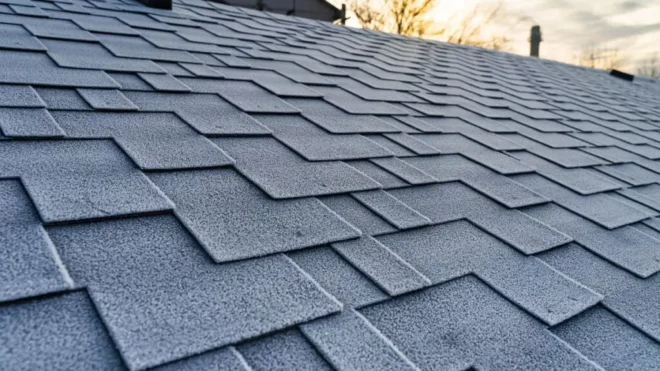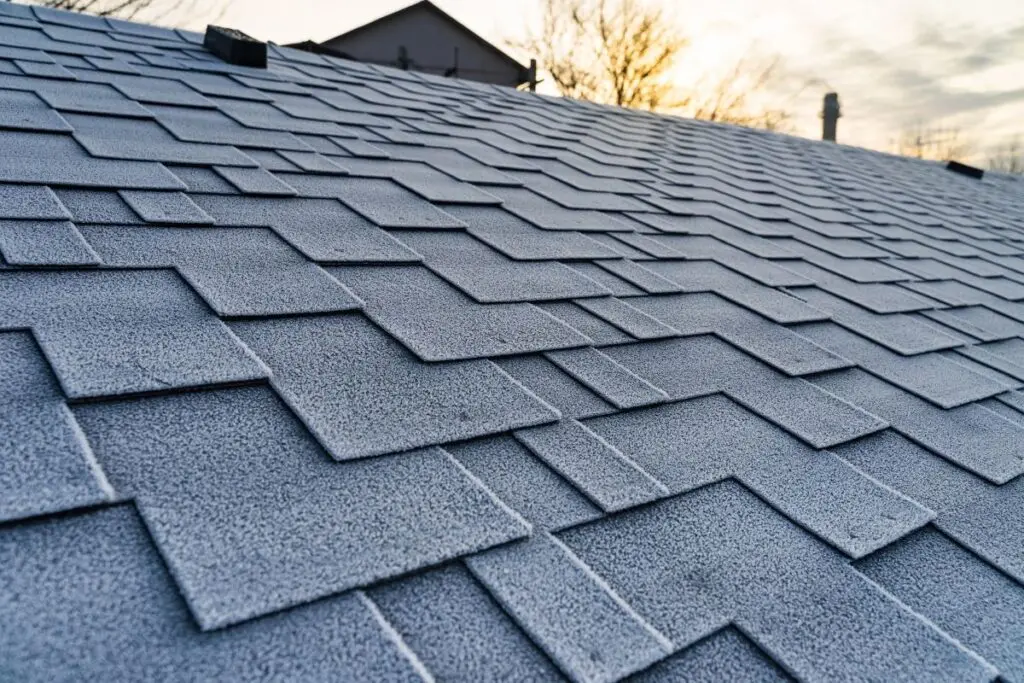Asphalt shingles are a popular roofing material, but their environmental impact is often questioned. In this blog, we will explore the eco-friendliness of asphalt shingles, including their production, usage, and end-of-life considerations.
What Are Asphalt Shingles?
Asphalt shingles are the most commonly used roofing material in North America. Made from a base layer of fiberglass or organic fibers, they are topped with a coating of asphalt and sprinkled with mineral granules. This combination not only provides durability but also ensures aesthetic versatility.
One reason for their popularity is their affordability. Many homeowners find asphalt shingles easy on the wallet compared to other roofing options. Additionally, they are available in various colors and styles, allowing homeowners to choose designs that complement their home’s exterior. This blend of beauty and practicality makes them a go-to choice for residential roofing.
However, with great popularity comes a responsibility to examine their environmental impact. As more homeowners consider eco-friendly options, the question arises: are asphalt shingles a sustainable choice? Understanding what asphalt shingles are is the first step in exploring their eco-friendliness.
The Production Process of Asphalt Shingles
The production of asphalt shingles involves several steps that begin with the extraction of raw materials. Natural resources, such as asphalt, fiberglass, and limestone, are obtained through mining and processing. This not only affects local environments but also contributes to carbon emissions.
During manufacturing, energy-intensive processes are employed. The combination of raw materials, heat, and machinery necessary to produce asphalt shingles results in a significant carbon footprint. While manufacturers are exploring more sustainable practices, it’s crucial for consumers to consider this ecological toll.
To mitigate these impacts, some companies are beginning to employ eco-friendly practices. This includes using recycled materials or exploring renewable energy sources during production. However, widespread adoption of these practices is still in its infancy.
Environmental Impacts During Use
Asphalt shingles are designed for durability, which means they can last between 20 to 30 years when properly maintained. During this lifespan, they help protect homes, contributing to energy efficiency by providing insulation against temperature fluctuations.
Despite their longevity, asphalt shingles do have environmental repercussions. One significant issue is their contribution to urban heat islands. As they absorb sunlight, they can elevate surrounding temperatures, which can affect local weather patterns and increase energy use.
Additionally, the runoff from roofs covered with asphalt shingles can introduce harmful chemicals into the environment. Studies have shown that these shingles can leach pollutants into rainwater, which can impact local water quality. Understanding these factors is crucial for homeowners who prioritize environmental sustainability.
Recycling and Disposal of Asphalt Shingles
A beacon of hope for asphalt shingles’ environmental impact lies in recycling. Many asphalt shingles are recyclable, and innovative recycling programs have emerged to reclaim usable materials. This reduces the burden on landfills while providing valuable materials for the production of new shingles.
The recycling process involves breaking down shingles into their component materials, which can then be reused in various applications, such as paving materials or new roofing products. This not only conserves resources but also promotes sustainability within the industry.
Ultimately, the awareness and participation in recycling initiatives play a significant role in determining the overall eco-friendliness of asphalt shingles. By choosing to recycle rather than dispose, homeowners can help lessen the negative impact on the environment.
Eco-Friendly Alternatives to Asphalt Shingles
For homeowners keen on reducing their carbon footprint, there are several eco-friendly alternatives to asphalt shingles. Metal roofing, for instance, is gaining popularity due to its durability and 100% recyclability. Many types of metal roofing materials are made from recycled content, offering a sustainable option.
Another option is roofing made from reclaimed materials, such as slate or wood. These materials not only have a distinct aesthetic appeal but also minimize waste by repurposing existing resources.
Each of these alternatives has its pros and cons, and homeowners should consider factors such as longevity, cost, and environmental impact when selecting a roofing material. Understanding these options can empower homeowners to make more informed decisions that align with their sustainability goals.
Wrapping Up the Eco-Friendliness of Asphalt Shingles
In conclusion, while asphalt shingles have certain environmental drawbacks, there are also efforts being made to improve their sustainability through recycling and the use of eco-friendly materials. Homeowners must weigh these factors when considering roofing options.




